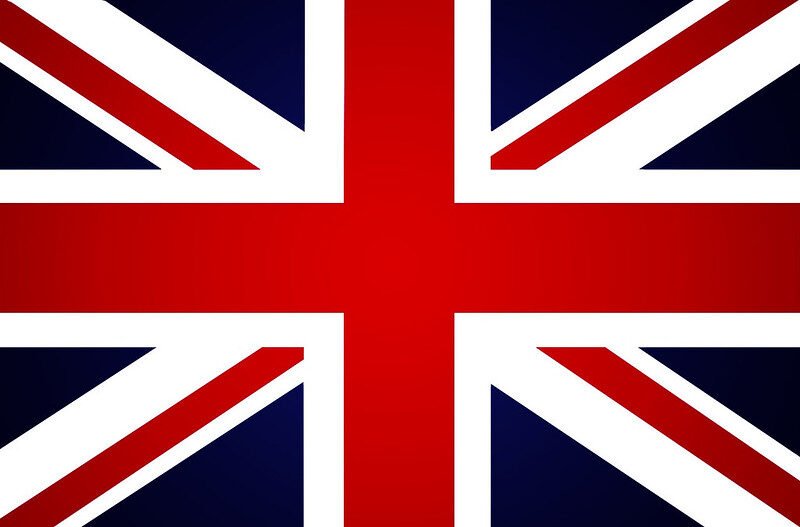Best 3 year fixed rate mortgages UK: Compare top deals 2024
Table of contents
- Current 3 year fixed rate mortgage deals
- How to choose the best fixed rate mortgage
- Mortgage rate comparison by top UK lenders
- Fixed rate mortgage requirements and eligibility
- Fixed vs variable rate mortgages: Which to choose
Current 3 year fixed rate mortgage deals
The UK mortgage market currently offers several competitive 3-year fixed rate deals from major lenders. Leading providers are offering rates starting from around 4%, with varying fees and eligibility requirements that borrowers should carefully consider.
Top lender rates and fees
HSBC leads the market with a 3-year fixed rate of 4.12% for their First Time Buyer Fixed Standard product, accompanied by a £999 product fee. Santander follows closely with rates from 4.29%, while Nationwide offers a Moving Home Fixed rate at 4.24%, both including a £999 product fee.
Additional costs to consider
Beyond the interest rate, borrowers should factor in various fees that can significantly impact the total cost of their mortgage:
- Product or arrangement fees (typically £999-£1,495)
- Valuation fees
- Legal fees
- Early repayment charges
Best deals for different circumstances
First-time buyers can find tailored products from Coventry Building Society at 4.39%, while NatWest offers competitive rates around 4.14% with a higher setup fee of £1,495. Those remortgaging might find better value in Barclays’ offerings, with rates starting slightly lower.
Current market trends
The mortgage market has shown signs of stabilization after recent volatility, with rates becoming more competitive across different lenders. However, it’s worth noting that rates can change frequently based on market conditions and economic factors. Current trends suggest a slight downward pressure on fixed rates, making it an opportune time for borrowers to secure a competitive deal.
How to choose the best fixed rate mortgage
Selecting the right fixed rate mortgage requires careful consideration of several key factors to ensure you get the most suitable deal for your circumstances. Here’s a comprehensive guide to help you make an informed decision.
Understanding your financial situation
Before comparing mortgage deals, assess your financial position thoroughly. Consider your income stability, existing debts, and monthly expenses. This will help determine how much you can realistically afford to borrow and repay each month. A detailed budget analysis is essential before committing to any mortgage product.
Evaluating deposit size and LTV ratio
The size of your deposit significantly impacts the interest rates available to you. Larger deposits typically secure better rates as they result in a lower loan-to-value (LTV) ratio. Aim for at least a 15% deposit if possible, as this often unlocks more competitive rates compared to 5% or 10% deposits.
Comparing total costs
Look beyond the headline interest rate when comparing mortgages. Consider:
- Arrangement fees
- Valuation fees
- Legal costs
- Early repayment charges
- Exit fees
Assessing lender requirements
Different lenders have varying eligibility criteria. Research each lender’s requirements regarding:
- Minimum income thresholds
- Credit score expectations
- Employment history requirements
- Age restrictions
Future-proofing your decision
Consider your long-term plans when choosing a mortgage. Think about:
- Potential changes in income
- Plans to move home
- Family planning
- Career changes
Using mortgage advisors
Consider working with a mortgage advisor who can access deals across the market. They can provide valuable insights and potentially find deals not available directly to consumers. Many advisors offer free initial consultations and can help navigate complex mortgage terms and conditions. A good advisor will also explain the pros and cons of different fixed-rate terms.
Timing your application
Market conditions can significantly impact mortgage rates. While timing the market perfectly is impossible, stay informed about current trends and economic factors that might affect rates. Consider seeking advice about whether current rates represent good value compared to historical averages.
Mortgage rate comparison by top UK lenders
When comparing 3-year fixed rate mortgages from leading UK lenders, it’s essential to understand the current rates and fees offered by each provider. Here’s a detailed breakdown of the top mortgage deals available from major UK lenders.
HSBC mortgage rates and fees
HSBC currently offers one of the most competitive 3-year fixed rate mortgages at 4.12% with a £999 product fee. This rate is particularly attractive for first-time buyers looking for payment stability over a medium-term period. Compare current rates on Moneyfacts.
Santander mortgage options
Santander’s 3-year fixed rate mortgage starts from 4.29% with a £999 product fee. Their remortgage fixed rate products are particularly competitive for those looking to switch lenders or secure a new deal.
Nationwide Building Society deals
Nationwide offers a moving home fixed rate at 4.24% for a 3-year term, accompanied by a £999 product fee. Current mortgage rates can be compared on Uswitch to find the most suitable deal.
Additional lender comparisons
- Coventry Building Society: Offers 4.39% for first-time buyers with a £999 fee
- Barclays: Provides competitive rates starting around 4.00% with a £999 setup fee
- NatWest: Offers rates around 4.14% with a £1,495 setup fee for first-time buyers
Product availability and features
The number of available mortgage products varies significantly between lenders. For instance, HSBC currently lists 268 mortgage products, while other lenders may offer fewer options. Learn more about current mortgage rates and product availability.
Important considerations when comparing
- Early repayment charges vary between lenders
- Standard variable rates after the fixed period ends
- Product fees and additional costs
- Flexibility for overpayments
- Portability options if you need to move home
Fixed rate mortgage requirements and eligibility
Securing a 3-year fixed rate mortgage requires meeting specific eligibility criteria and providing comprehensive documentation to demonstrate your financial stability. Understanding these requirements is crucial for a successful application.
Basic eligibility requirements
To qualify for a 3-year fixed rate mortgage in the UK, you’ll need to meet several fundamental criteria:
- Be at least 18 years old
- Have UK residency status
- Maintain a stable income source
- Demonstrate good credit history
- Show ability to afford monthly repayments
Required documentation
Lenders require extensive documentation to assess your mortgage application. Essential documents include:
- 3-6 months of recent payslips
- Last 6 months of bank statements
- Proof of address (utility bills)
- P60 from your employer
- Two forms of photo ID
- Self-employed individuals need 2-3 years of accounts
Income and affordability assessment
Lenders carefully evaluate your income and financial commitments to determine mortgage affordability. Most lenders will consider lending up to 4.5 times your annual income, though this can vary. According to mortgage advisors, factors affecting affordability include:
- Regular income and bonuses
- Existing financial commitments
- Monthly expenses
- Credit card debts and loans
Deposit requirements
The size of your deposit significantly impacts both eligibility and interest rates. According to current market data, typical deposit requirements are:
- Minimum 5% deposit for first-time buyers
- 10-15% deposit for better interest rates
- 20% or more for the most competitive rates
Credit score considerations
A strong credit score is essential for mortgage approval. Lenders will examine:
- Credit history and payment record
- Current credit utilisation
- Electoral roll registration
- Any previous bankruptcies or CCJs
Working with a mortgage broker can significantly improve your chances of approval, as they can match you with lenders most likely to accept your application based on your specific circumstances. According to industry experts, borrowers should ideally start preparing their documentation and improving their credit score at least six months before applying.
Fixed vs variable rate mortgages: which to choose
When deciding between a fixed or variable rate mortgage, several key factors need consideration. Let’s explore the main differences to help you make an informed decision for your financial future.
Understanding fixed rate mortgages
A fixed rate mortgage, like the 3-year fixed option, provides stability through guaranteed monthly payments throughout the fixed term. According to Online Mortgage Advisor, this certainty makes budgeting easier and protects against interest rate increases during the fixed period.
Benefits of variable rate mortgages
Variable rate mortgages typically offer more flexibility and potentially lower initial rates. They can be advantageous if interest rates fall, as your monthly payments would decrease accordingly. However, they carry the risk of payment increases if rates rise.
Key differences between fixed and variable rates
- Payment stability: Fixed rates offer consistent payments, while variable rates fluctuate with market conditions
- Early repayment charges: Fixed rates typically have stricter early repayment penalties
- Initial costs: Variable rates often have lower initial rates but with less certainty
- Flexibility: Variable rates usually offer more freedom for overpayments
Making your decision
The choice between fixed and variable rates depends largely on your personal circumstances and risk tolerance. According to Private Finance, if you value payment stability and can afford slightly higher initial rates, a fixed rate mortgage might be more suitable.
Consider choosing a fixed rate if:
- You need predictable monthly payments for budgeting
- You’re concerned about potential interest rate rises
- You’re comfortable with the current rates and want to lock them in
A variable rate might be better if:
- You want more flexibility with overpayments
- You’re comfortable with payment fluctuations
- You believe interest rates might decrease
Expert analysis from London Money suggests that in the current economic climate, many borrowers are opting for fixed rates to protect against potential market volatility, particularly those who prioritise payment stability over potential savings from rate fluctuations.

